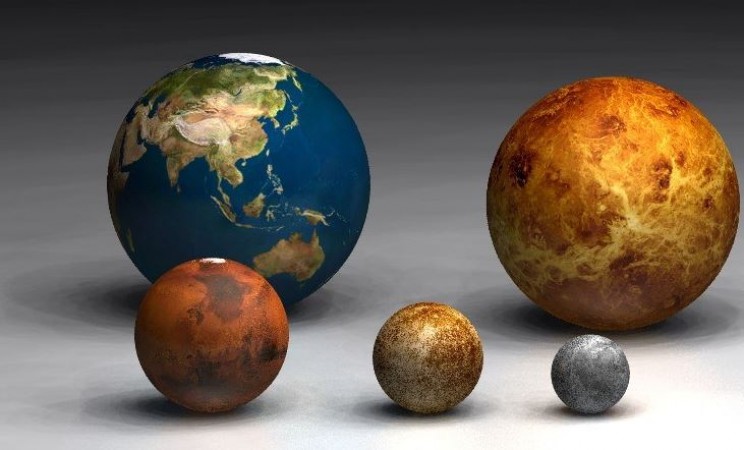
The universe never ceases to amaze us with its boundless wonders, from the vast expanses of celestial bodies to the stunning landscapes right here on Earth. In this article, we embark on a journey to explore the fascinating comparison between the surface area of Russia, the largest country on our planet, and Pluto, the enigmatic dwarf planet lurking on the edges of our solar system. Join us as we delve into the remarkable characteristics of both and discover the intriguing significance of this comparison.
Russia's Vast Territory
Historical Context
Russia's history is rich and diverse, stretching back centuries and encompassing a multitude of cultures, traditions, and accomplishments. From the splendors of the Tsars to the tumultuous revolutions that shaped its modern identity, Russia's historical journey is nothing short of extraordinary.
Geographical Extent
Covering an astonishing 17.1 million square kilometers, Russia holds the title of the largest country in the world by land area. Its territory spans across eleven time zones, stretching from Eastern Europe to Northern Asia. The country's vast landscapes include majestic mountains, expansive plains, dense forests, and intricate river systems, making it a land of immense geographical diversity.
The Enigmatic Dwarf Planet Pluto
Pluto's Discovery and Reclassification
Pluto's existence was first confirmed in 1930 by astronomer Clyde Tombaugh, captivating the world as the ninth planet in our solar system. However, in 2006, the International Astronomical Union (IAU) redefined the criteria for planetary classification, leading to Pluto's reclassification as a dwarf planet. Despite this change, Pluto's allure has only intensified, leaving us eager to uncover its mysteries.
Characteristics and Size
Pluto's diminutive size sets it apart from the majestic planets like Earth and Jupiter. With a diameter of approximately 2,377 kilometers, Pluto is smaller than Earth's moon. Despite its size, scientists have discovered unique features on its surface, including icy plains, towering mountains, and potential evidence of a subsurface ocean, making it a celestial object of great interest.
Comparing Russia and Pluto's Surface Area
Understanding Russia's Surface Area
Russia's sheer vastness is awe-inspiring, covering more than one-eighth of the Earth's inhabited land area. Its boundaries span from the Baltic Sea in the west to the Pacific Ocean in the east, bordering a diverse array of countries. The diversity of its landscapes is a testament to the country's significance on the world stage.
Unraveling Pluto's Surface Area
In stark contrast, Pluto's surface area is minuscule compared to Russia's. Although its size is relatively small, the scientific community continues to study and analyze the characteristics of this distant world, using advanced telescopes and space probes to gather information.
Pondering the Significance
The comparison between the surface area of Russia and Pluto might seem like an incongruous juxtaposition, but it serves as a humbling reminder of the vastness and diversity of our universe. From the colossal expanses of Russia's landscapes to the mysteries hidden within Pluto's icy plains, each showcases the magnificence of our cosmos.
Russia's Diversity and Pluto's Mysteries
Biodiversity in Russia
Russia's vast territory harbors an unparalleled biodiversity, with various ecosystems supporting a myriad of flora and fauna. From the Siberian tigers to the elusive snow leopards, the country's wildlife is a treasure trove of ecological wonders.
Probing Pluto's Secrets
Pluto's surface is a testament to the mysterious nature of the cosmos. As space missions and research endeavors continue to shed light on this distant world, scientists hope to unveil the secrets locked beneath its icy exterior.
The Debate on Pluto's Planetary Status
Planetary Definitions
The reclassification of Pluto from a planet to a dwarf planet sparked a contentious debate within the scientific community and among space enthusiasts. The IAU's criteria for planetary classification became a subject of scrutiny, prompting discussions about the definition of a planet.
Pluto's Controversial Classification
The debate over Pluto's planetary status underscores the ever-evolving nature of scientific understanding. While some argue that it should reclaim its planetary title, others contend that the reclassification is scientifically justified.
Exploration and Research
Russia's Exploration Efforts
Throughout history, Russia has been at the forefront of space exploration. Pioneering achievements such as launching the first human, Yuri Gagarin, into space have solidified Russia's position as a leading space-faring nation.
Space Probes to Pluto
Several space missions, including the New Horizons mission by NASA, have provided us with invaluable insights into Pluto's geology, atmosphere, and surface. These missions have expanded our knowledge of this distant celestial body.
Surprising Facts
Russia's Extreme Points
Russia boasts diverse geographical extremes, including the northernmost point, Cape Fligely, and the easternmost point, Big Diomede Island. Such extremes contribute to the nation's uniqueness.
Strange Features on Pluto
Pluto's surface has captivated scientists with its peculiar features, such as the heart-shaped Tombaugh Regio and the towering mountains made of water ice. These discoveries add to the allure of this distant world.
The Beauty of Earth and Space
Russia's Scenic Wonders
Russia's breathtaking landscapes, from the snow-capped peaks of the Caucasus to the awe-inspiring Lake Baikal, showcase the splendor of nature in all its glory.
Captivating Images of Pluto
Despite its distant location, space probes have managed to capture stunning images of Pluto, revealing its surface in unprecedented detail and igniting our curiosity about the celestial bodies that populate our solar system.
In the grand tapestry of the universe, the surface area of Russia stands as a testament to the vastness and diversity of our home planet. Comparing it to the dwarf planet Pluto, with its mysteries and allure, reminds us of the countless wonders that await exploration beyond our Earthly borders. As we continue to gaze at the heavens and probe the secrets of the cosmos, we remain humbled by the sheer magnitude and complexity of our universe.
Exploring the Enchanting Loire Valley: A Journey through Beauty